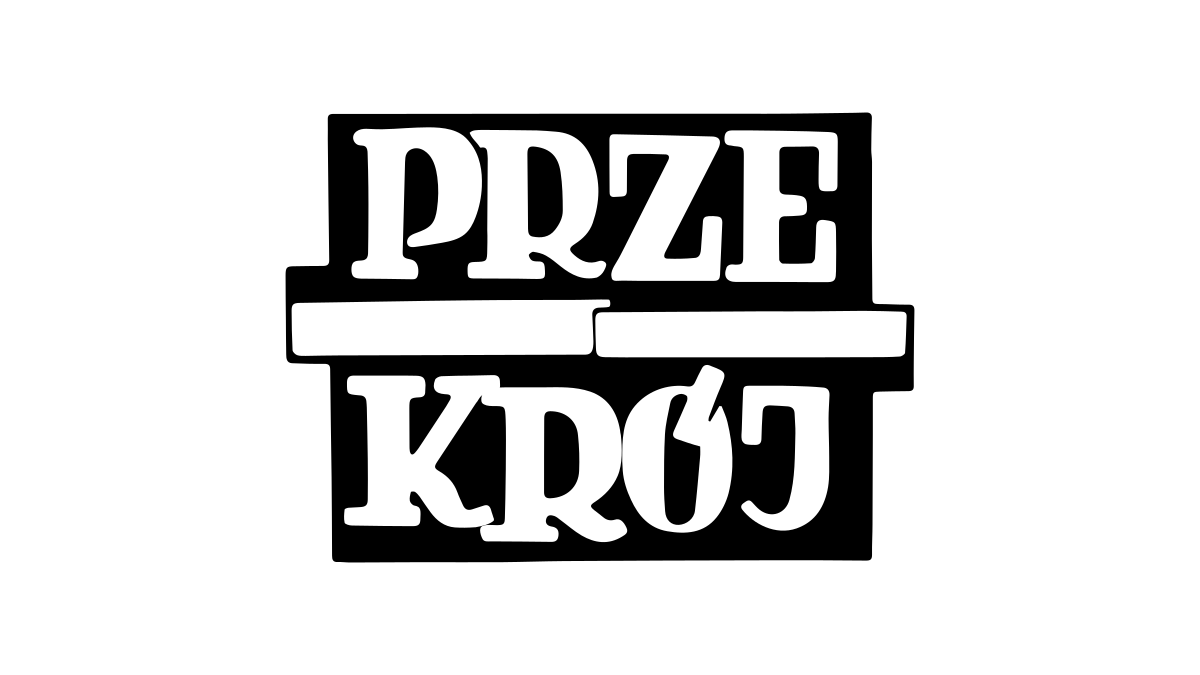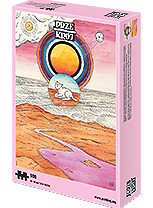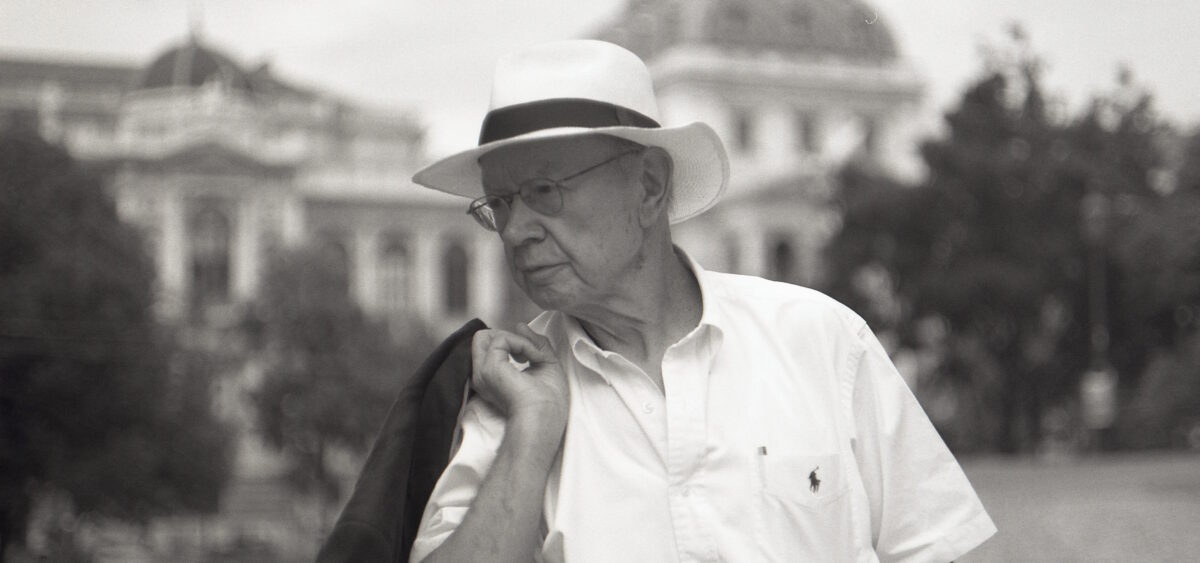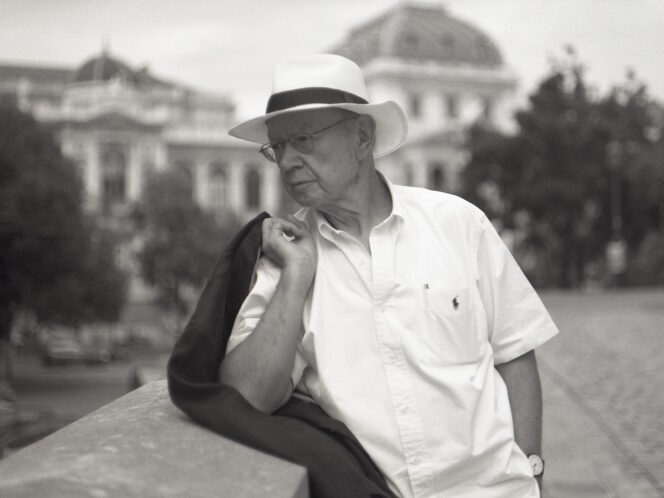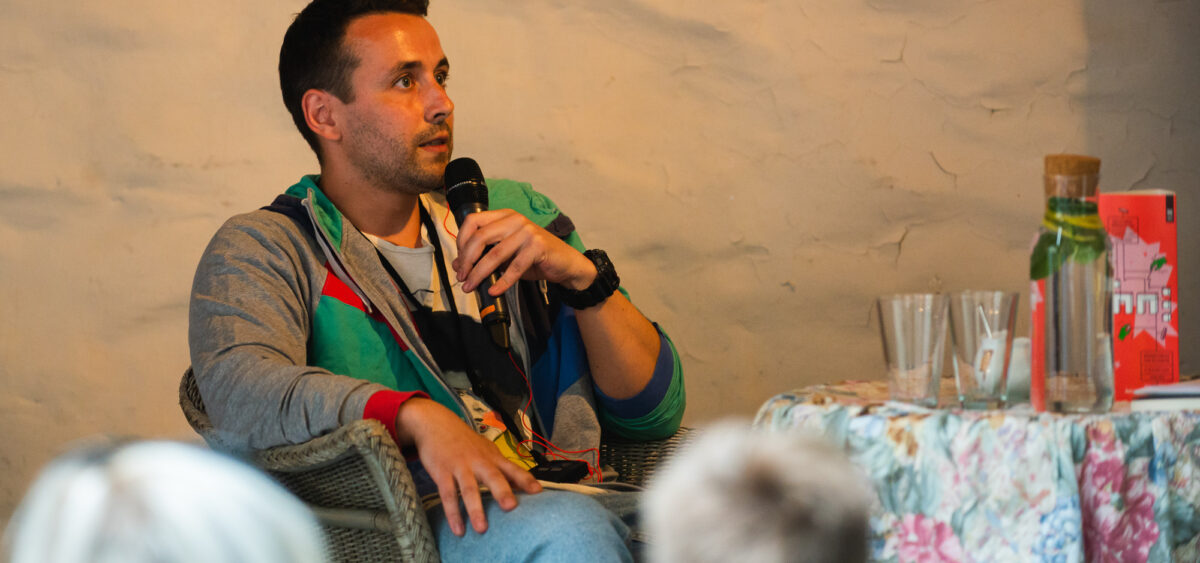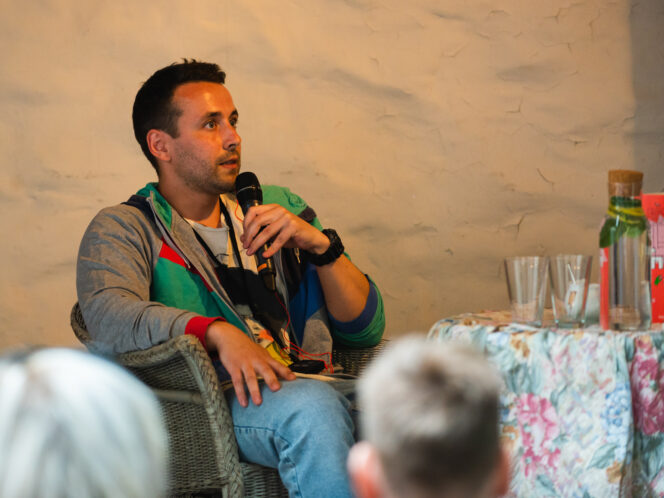
Author Martin Pollack (born 1944) saw his creativity blossom, as did many other Austrian artists, through the uncovering of his country’s dark history. In confronting Austrian national myths, works of his such as Anklage Vatermord. Der Fall Philipp Halsmann (Patricide Charges: The Case of Philipp Halsmann) are as equally powerful critiques of Austrian society as the works of Thomas Bernhard, Elfriede Jelinek, Ulrich Seidl or Michael Haneke.
The author was born into a family that openly supported Nazism (he was the son of the war criminal Gerhard Bast). He takes his surname from his stepfather, Hans Pollack, a painter and graphic artist. Before turning to writing, he was a student of Slavic Studies (in Warsaw, among other places), and worked as a journalist and correspondent. During this time, he wrote his first book Galizien: Eine Reise durch die verschwundene Welt Ostgaliziens und der Bukowina (Galicia: A Journey Through the Vanished World of Eastern Galicia and Bukovina). This distinctive guide to the outer periphery of the former Austro-Hungarian Empire was written from behind his desk, because he was refused entry to communist Poland.
At the start of the twenty-first century, Martin Pollack made his breakthrough as a writer when he published two historical reportages: Anklage Vatermord. Der Fall Philipp Halsmann (Patricide Charges: The Case of Philippe Halsmann) and Der Tote im Bunker: Bericht über meinen Vater (The Dead Man in the Bunker: Discovering My Father). In the first book, he describes a mysterious accident in the Austrian mountains in 1928 in which a Russian Jew, Morduch Halsmann, died and the only witness (and more importantly, the accused) was his son, the future photographer, Philippe Halsmann—this was an opportunity for Pollack to describe the rise of Austrian antisemitism. The second book deals with the story of his Nazi family, in particular of his father, a war criminal who was murdered in 1947.
His subsequent works, Warum wurden die Stanislaws erschossen (2008) (Why Were the Stanislaws Shot), Kaiser von Amerika (2010) (Emperor of America), Kontaminierte Landschaften (2014) (Contaminated Landscapes) and Topografie der Erinnerung (2016) (Topography of Memory), strengthened the writer’s
